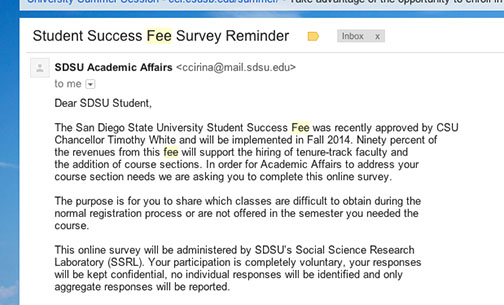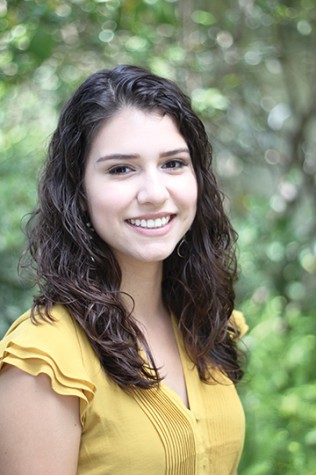The Student Success Fee survey, which was sent out for the first time April 7th, closed with 2,594 student votes last Friday.
This survey was the only opportunity for the students to provide feedback on what courses they thought need funding and what sections need bolstering. These results would determine what areas need tenure track faculty. The survey email stated that 90 percent of the revenue from the fee will go toward the sections that are most in need.
“This is a busy time of year and students might not have felt they had the time to respond earlier,” LaMaster said.
Although the response rate was low − 8.6 percent of the total student body — Academic Affairs will be gathering additional data from the colleges and WebPortal to conclude where the biggest challenges in enrollment are in order to be able to target those areas this fall.
“We will be posting information on the Campus Fee Advisory Committee website as we move through the process, particularly in the fall …. so depending on feedback from students we might survey again next year,” LaMaster said. “But at this point we just don’t know our next strategy to engage students, but I really want to hear their voice.”
Child and family development freshman Alma Mendez said she didn’t have time to participate in the survey, but wished she had.
“If we don’t participate, how do they know which classes to put the money toward?” Mendez said. “I don’t think they publicized the survey enough.”
Mendez said the participation rate would have been higher if there had been a previous announcement made about the survey. Still, she said Academic Affairs will be able to make an accurate decision of where the money should be allocated with the information pulled from WebPortal and the colleges.
Psychology senior Brittany Fasano said she was completely unaware of the email survey.
“I didn’t see the email,” Fasano said. “But I don’t think that (the survey) is an accurate representation of our student body, because we have like, 30,000 students. It’s not a representative sample.”
Fasano thought the survey could have been more effective if it was given during classes.
“Our teachers should be an active part of this too,” Fasano said.









